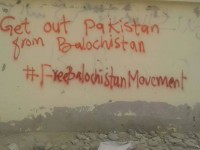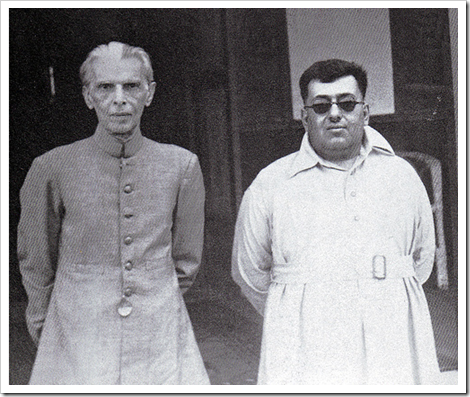Asian.Century
ELITE MEMBER

- Joined
- Nov 1, 2010
- Messages
- 10,753
- Reaction score
- -2
- Country
- Location
United States of America refuses to back Indian Prime Minister Modi’s claims
WASHINGTON: The United States continues to view the Kashmir issue as a dispute that needs to be settled by both India and Pakistan, says the US State Department, while distancing itself from India’s claims over Azad Kashmir and local Baloch issue.
In his Independence Day speech on Monday, Indian Prime Minister Narendra Modi refused to address the ongoing military oppression in India-held Kashmir.
Instead, he accused Islamabad of suppressing the people of Azad Kashmir and Balochistan, saying that “Pakistan shall have to answer to the world” for the alleged atrocities committed against the people in these regions.
At a Monday afternoon news briefing, an Indian journalist asked Elizabeth Trudeau, director of the US State Department Press Office, to address Mr Modi’s comments. The Indian journalist also claimed that the people of Azad Kashmir were “all Indians,” and said to the State Department official that the “time has come now to speak out” for those people as they were not allowed to express their views.
The journalist also reminded the State Department official that the Indian prime minister had directed his ministry of foreign affairs to raise this issue at the international level.
“I wouldn’t speak on Mr Modi’s comments. That would be for him to speak to,” said Ms Trudeau. “Our position, as you well know, on Kashmir has not changed. The pace, the scope, the character of any discussions on Kashmir is for the two sides to determine.”
The US official also urged Pakistan and India to work jointly to resolve this issue, which Pakistan warns has the potential to lead to yet another war between South Asia’s two nuclear-armed states. “We support any and all positive steps that India and Pakistan can take to forge closer relations,” she said.
Instead of addressing the alleged Pakistani atrocities in Azad Kashmir or even Balochistan, Ms Trudeau referred to clashes between civilian demonstrators and Indian forces in the Kashmir Valley and encouraged “all sides” to seek a peaceful solution.
“We’re aware of the clashes in Kashmir. We remain concerned about the violence, and we encourage all sides to make efforts to finding a peaceful resolution,” she said.
Noting that she was referring to clashes in India-held Kashmir, the journalist asked: “Is this the time now for the State Department to look into that part of Kashmir also?”
“I would leave our comments on Kashmir where I left them. We do remain concerned about the violence,” Ms Trudeau replied.
Published in Dawn, August 17th, 2016
Read Comments: http://www.dawn.com/news/1278096/us-refuses-to-back-modis-claims
---------------------------------------------------------------
US Government stays away from Modi’s position on Balochistan
WASHINGTON: In a carefully calibrated statement on Balochistan, the United States on Monday stayed away from an Indian effort to generate an international controversy over the restive province and instead urged all parties to resolve their differences peacefully.
In India’s Independence Day speech, Prime Minister Narendra Modi accused Pakistan of committing human rights violations in Balochistan, Gilgit-Baltistan and Azad Kashmir and claimed that people of those regions had thanked him for supporting them.
Pakistan reacted angrily to the speech, calling it a breach of international norms and intrusion in the country’s sovereignty.
“We have consistently urged all parties in Pakistan to work out their differences peaceably and through a valid political process,” a US State Department official told Dawn when asked to comment on the situation in Balochistan following Mr Modi’s comments.
In an earlier statement, also about Balochistan, the department’s deputy spokesman Mark Toner had assured Pakistan of its support to the country’s territorial integrity.
Another State Department official said there had been no change in the US policy on this issue.
Replying to a question, the official said: “We have seen reports of the clashes between protesters and Indian forces in Kashmir, and are concerned by the violence.”
As in his comments on the situation in Balochistan, the official encouraged “all sides to make efforts towards finding a peaceful resolution”.
Commenting on Mr Modi’s statement, Pakistani officials and media said he was trying to hide the atrocities committed by Indian security forces in held Kashmir by bracketing the situation in the valley with Balochistan, which, unlike Kashmir, was not a disputed territory.
But the Indian effort to internationalise the situation in Balochistan received support from the Bangladeshi government and former Afghan president Hamid Karzai.
During a visit to India, Bangladeshi Information Minister Hasanul Haque Inu said Bangladesh supported Mr Modi’s stand on Balochistan and would soon make a policy declaration on the issue. Mr Karzai said Mr Modi’s remarks should make the Pakistan government “see the gravity of the situation”.
Published in Dawn, August 23rd, 2016
Read comments: http://www.dawn.com/news/1278096/us-refuses-to-back-modis-claims
Master US of India refuses to acknowledge India's so called made up stories of Balochistan and Azad Kashmir of Pakistan. A brutal slap on India's face.
WASHINGTON: The United States continues to view the Kashmir issue as a dispute that needs to be settled by both India and Pakistan, says the US State Department, while distancing itself from India’s claims over Azad Kashmir and local Baloch issue.
In his Independence Day speech on Monday, Indian Prime Minister Narendra Modi refused to address the ongoing military oppression in India-held Kashmir.
Instead, he accused Islamabad of suppressing the people of Azad Kashmir and Balochistan, saying that “Pakistan shall have to answer to the world” for the alleged atrocities committed against the people in these regions.
At a Monday afternoon news briefing, an Indian journalist asked Elizabeth Trudeau, director of the US State Department Press Office, to address Mr Modi’s comments. The Indian journalist also claimed that the people of Azad Kashmir were “all Indians,” and said to the State Department official that the “time has come now to speak out” for those people as they were not allowed to express their views.
The journalist also reminded the State Department official that the Indian prime minister had directed his ministry of foreign affairs to raise this issue at the international level.
“I wouldn’t speak on Mr Modi’s comments. That would be for him to speak to,” said Ms Trudeau. “Our position, as you well know, on Kashmir has not changed. The pace, the scope, the character of any discussions on Kashmir is for the two sides to determine.”
The US official also urged Pakistan and India to work jointly to resolve this issue, which Pakistan warns has the potential to lead to yet another war between South Asia’s two nuclear-armed states. “We support any and all positive steps that India and Pakistan can take to forge closer relations,” she said.
Instead of addressing the alleged Pakistani atrocities in Azad Kashmir or even Balochistan, Ms Trudeau referred to clashes between civilian demonstrators and Indian forces in the Kashmir Valley and encouraged “all sides” to seek a peaceful solution.
“We’re aware of the clashes in Kashmir. We remain concerned about the violence, and we encourage all sides to make efforts to finding a peaceful resolution,” she said.
Noting that she was referring to clashes in India-held Kashmir, the journalist asked: “Is this the time now for the State Department to look into that part of Kashmir also?”
“I would leave our comments on Kashmir where I left them. We do remain concerned about the violence,” Ms Trudeau replied.
Published in Dawn, August 17th, 2016
Read Comments: http://www.dawn.com/news/1278096/us-refuses-to-back-modis-claims
---------------------------------------------------------------
US Government stays away from Modi’s position on Balochistan
WASHINGTON: In a carefully calibrated statement on Balochistan, the United States on Monday stayed away from an Indian effort to generate an international controversy over the restive province and instead urged all parties to resolve their differences peacefully.
In India’s Independence Day speech, Prime Minister Narendra Modi accused Pakistan of committing human rights violations in Balochistan, Gilgit-Baltistan and Azad Kashmir and claimed that people of those regions had thanked him for supporting them.
Pakistan reacted angrily to the speech, calling it a breach of international norms and intrusion in the country’s sovereignty.
“We have consistently urged all parties in Pakistan to work out their differences peaceably and through a valid political process,” a US State Department official told Dawn when asked to comment on the situation in Balochistan following Mr Modi’s comments.
In an earlier statement, also about Balochistan, the department’s deputy spokesman Mark Toner had assured Pakistan of its support to the country’s territorial integrity.
Another State Department official said there had been no change in the US policy on this issue.
Replying to a question, the official said: “We have seen reports of the clashes between protesters and Indian forces in Kashmir, and are concerned by the violence.”
As in his comments on the situation in Balochistan, the official encouraged “all sides to make efforts towards finding a peaceful resolution”.
Commenting on Mr Modi’s statement, Pakistani officials and media said he was trying to hide the atrocities committed by Indian security forces in held Kashmir by bracketing the situation in the valley with Balochistan, which, unlike Kashmir, was not a disputed territory.
But the Indian effort to internationalise the situation in Balochistan received support from the Bangladeshi government and former Afghan president Hamid Karzai.
During a visit to India, Bangladeshi Information Minister Hasanul Haque Inu said Bangladesh supported Mr Modi’s stand on Balochistan and would soon make a policy declaration on the issue. Mr Karzai said Mr Modi’s remarks should make the Pakistan government “see the gravity of the situation”.
Published in Dawn, August 23rd, 2016
Read comments: http://www.dawn.com/news/1278096/us-refuses-to-back-modis-claims
Master US of India refuses to acknowledge India's so called made up stories of Balochistan and Azad Kashmir of Pakistan. A brutal slap on India's face.
Last edited:














